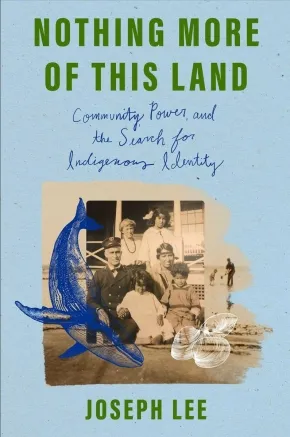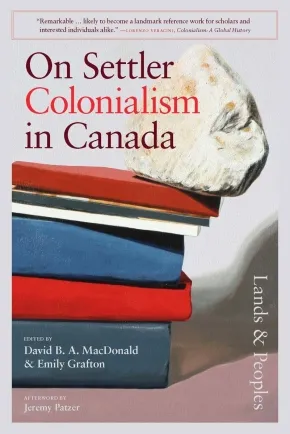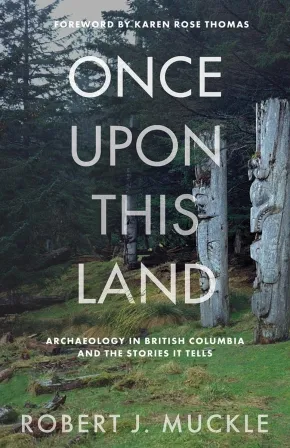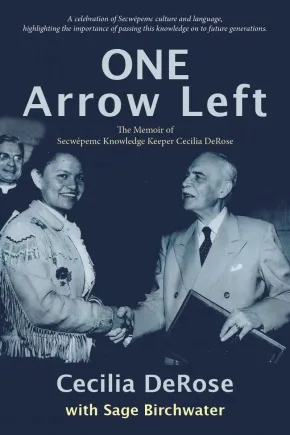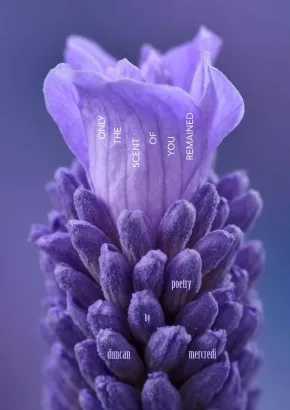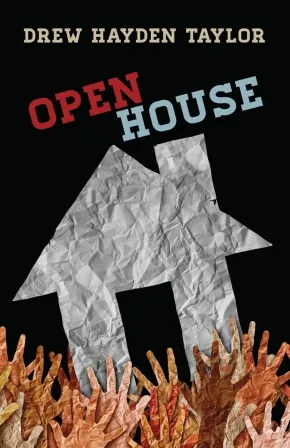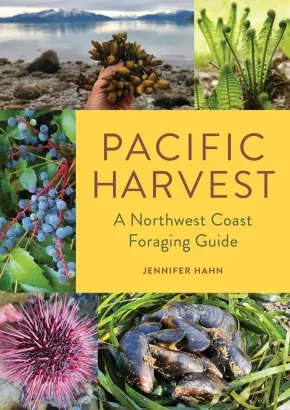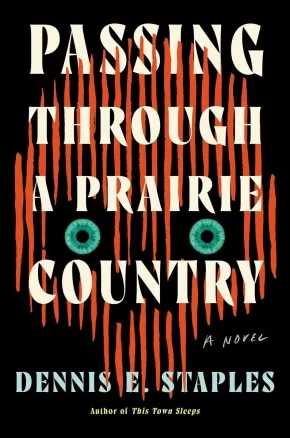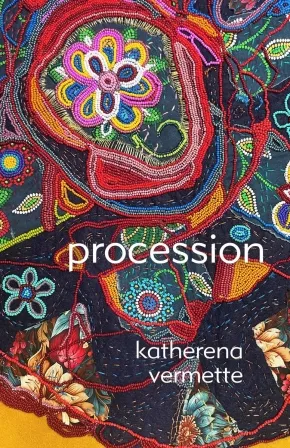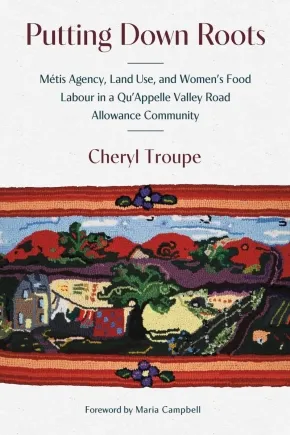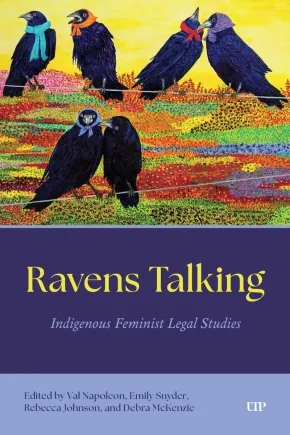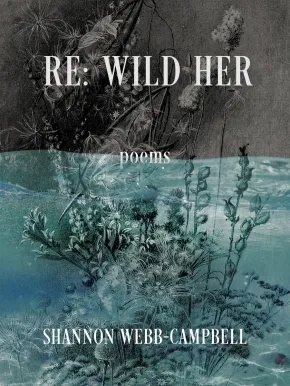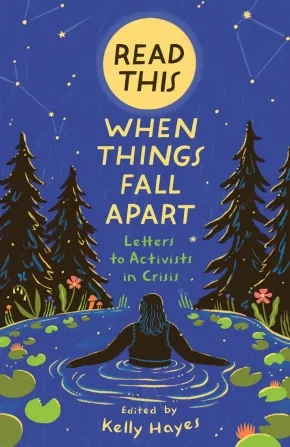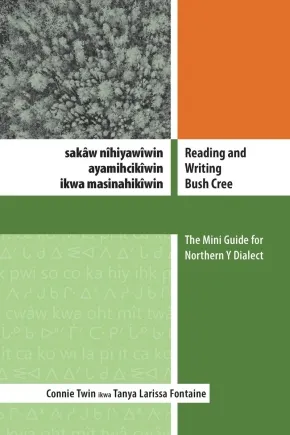Adult Book
Synopsis:
From award-winning journalist Joseph Lee, a sweeping, personal exploration of Indigenous identity and the challenges facing Indigenous people around the world.
Before Martha’s Vineyard became one of the most iconic vacation destinations in the country, it was home to the Wampanoag people. Today, as tourists flock to the idyllic beaches, the island has become increasingly unaffordable for tribal members, with nearly three-quarters now living off-island. Growing up Aquinnah Wampanoag, journalist Joseph Lee grappled with what this situation meant for his tribe, how the community can continue to grow, and more broadly, what it means to be Indigenous.
In Nothing More of This Land, Lee weaves his own story and that of his family into a panoramic narrative of Indigenous life around the world. He takes us from the beaches of Martha’s Vineyard to the icy Alaskan tundra, the smoky forests of Northern California to the halls of the United Nations, and beyond. Along the way he meets activists fighting to protect their land, families clashing with their own tribal leaders, and communities working to reclaim tradition.
Together, these stories reject stereotypes to show the diversity of Indigenous people today and chart a way past the stubborn legacy of colonialism.
Reviews
"Nothing More Of This Land is a stark, beautifully rendered reminder of all that had to occur for the happening of our existences to take place, and all who lived and fought against their own erasure to maintain a semblance of a legacy. This is a profound, and moving book, a powerful indictment of the colonial mindset that firmly balances an ode to people, to place, to remaining."—Hanif Abdurraqib, author of There's Always This Year
"A forcefully illuminating and utterly compelling blend of personal narrative and vivid reportage, Joseph Lee’s Nothing More of this Land is a triumph of complexity and insight. We follow Lee from the red clay cliffs of Aquinnah to the halls of the UN, from the Klamath River basin to a feast of muktuk and tundra greens in Bethel, Alaska; and very early on I realized I’d follow him anywhere. Lee has given us a timely reckoning with Native sovereignty and community that is adroitly committed to the mess and nuance of lived experience, rather than sentimentalized accounts of victimhood or resilience. Nothing More of this Land is tender, ferocious, surprising, and tenaciously thoughtful; its existence makes the world a bigger and truer place."—Leslie Jamison, bestselling author of The Empathy Exams
Additional Information
256 pages | 6.00" x 9.00" | Hardcover
Synopsis:
A coming-of-middle-age novel about an Ahkwesáhsne man’s reluctant return home and what it takes to heal.
Abe Jacobs is Kanien’kehá:ka from Ahkwesáhsne—or, as white people say, a Mohawk Indian from the Saint Regis Tribe. At eighteen, Abe left the reservation where he was raised and never looked back.
Now forty-three, Abe is suffering from a rare disease—one his doctors in Miami believe will kill him. Running from his diagnosis and a failing marriage, Abe returns to the Rez, where he’s persuaded to undergo a healing at the hands of his Great Uncle Budge. But Budge—a wry, recovered alcoholic prone to wearing punk T-shirts—isn’t all that convincing. And Abe’s time off the Rez has made him a thorough skeptic.
To heal, Abe will undertake a revelatory journey, confronting the parts of himself he’s hidden ever since he left home and learning to cultivate hope, even at his darkest hour.
Delivered with crackling wit, Old School Indian is a striking exploration of the power and secrets of family, the capacity for healing and catharsis, and the ripple effects of history and culture.
Reviews
“With amazing dexterity, Aaron John Curtis’s moving debut novel, Old School Indian, combines raucous humor with respect for ancestral traditions, revealing that home is not only where a heart resides. Home is a place in our spirits, in our histories, in our memories—home is a longing that never leaves us.” —Honorée Fanonne Jeffers, New York Times bestselling author of The Love Songs of W.E.B. Du Bois
“Old School Indian is an inspired novel by an author whose voice absolutely sizzles on the page. Aaron John Curtis has given us a moving story of self-discovery that journeys through the crucibles of sickness, history, identity, family, and loss—all told by one of the most inventive, funny, brash narrators you’ll ever find. A beautiful, dazzling debut.” ―Nathan Hill, New York Times bestselling author of Wellness and The Nix
“With its profound exploration of identity, language, and cultural survival, Old School Indian commands attention. Through the vivid and deeply human lives of a Mohawk family, Curtis weaves a narrative that insists we listen closely and engage deeply. The characters, grounded in both tradition and the challenges of modernity, speak with a voice that is both urgent and timeless, drawing us into a world where every word, every action, carries the weight of history and the hope for the future. Curtis strikingly balances humor and gravity, creating a story that forces us to confront our assumptions, demands to be heard, and ultimately reminds us of the enduring, sacred power of storytelling. Old School Indian joins the ranks of the finest fiction written by Indigenous peoples, past and present. This is a novel of pure heart and mastery.” ―Morgan Talty, national bestselling author of Night of the Living Rez and Fire Exit
“Aaron John Curtis's audacious debut is not just a novel. It is personal and collective history dancing on the page to wake us to the world around us. By examining the colonization of a body and a people, Old School Indian addresses our festering wound of a need to heal, challenging us to use memory as a remedy and our purpose as a cure. You'll laugh, you'll think, you may even shed a few tears and sit in wonder at the ingenuity and sheer balls of this work and author. An instant classic that will continue to beat in readers' hearts for generations.” —Mateo Askaripour, New York Times bestselling author of Black Buck and This Great Hemisphere
“Aaron John Curtis gives us honest storytelling shaped by humor, sincerity, and heartbreak. His characters are drawn with strength from his Indigenous community and skillfully cured by tradition and hope. Old School Indian is a novel that reminds us of an essential truth: When one person heals, the entire community can feel it.”—Oscar Hokeah, PEN/Hemingway Award-winning author of Calling for a Blanket Dance
“This is my favorite kind of storytelling: chock-full of humor and grief, packed with intriguing family lore, and written with a tremendous amount of heart. Aaron John Curtis has crafted something powerfully complex here; a novel that invites you to sit down, take a beat, and share space. This book is a feast for the senses—it’s an incredible meal you’ll want to share with your friends. Old School Indian is exceptional.” —Kristen Arnett, New York Times bestselling author of Mostly Dead Things
“Curtis’ debut novel holds the power to open eyes to who Indigenous people truly are. Brave, funny and irreverent, Old School Indian reveals what separates us from each other—but also from ourselves. As Abe endures the painful internalized racism that comes from filtering who he is through what the world says about him, his journey indicts all the relationships that ask us to filter who we are through narratives of oppression. And at its heart, this is a story about what it means to practice care.” —Chelsea T. Hicks, author of A Calm and Normal Heart and National Book Foundation 5 Under 35 Honoree
“An affecting tale of loss and healing that thrives through its seriocomic style.” —Kirkus, starred review
Additional Information
352 pages | 6.00" x 9.00" | Hardcover
Synopsis:
An unflinching examination of the impacts of settler colonialism from first contact to the contemporary nation state.
On Settler Colonialism in Canada: Lands and Peoples is the first installment in a comprehensive collection investigating settler colonialism as a state mandate, a structuring logic of institutions, and an alibi for violence and death. The book examines how settler identities are fashioned in opposition to nature and how eras of settler colonialism have come to be defined. Scholars and thinkers explore how settlers understood themselves as servants of empire, how settler identities came to be predicated on racialization and white supremacy, and more recently, how they have been constructed in relation to multiculturalism.
Featuring perspectives from Indigenous, Black, mixed-race, and other racialized, queer, and white European-descended thinkers from across a range of disciplines, On Settler Colonialism in Canada: Lands and Peoples addresses the fundamental truths of this country. Essays engage contemporary questions on the legacy of displacement that settler colonialism has wrought for Indigenous people and racialized settlers caught up in the global implications of empire.
Asserting that reconciliation is a shared endeavor, the collection’s final section exposes the myth at the heart of Canada’s constitutional legitimacy and describes the importance of affirming Indigenous rights, protecting Indigenous people (especially women) from systemic violence, and holding the Canadian settler nation state—which has benefited from the creation and maintenance of genocidal institutions for generations—accountable.
Reviews
“Remarkable...likely to become a landmark reference work for scholars and interested individuals alike.” — Lorenzo Veracini, author of Colonialism: A Global History
“Positive shared futures with all our relations depend on perpetual truth-telling and (re)conciliation. This book guides us through the dark and toward the light.”— David Garneau, author of Dark Chapters
"A thought-provoking and insightful ‘must read’ for all those seeking reconciliation based on truth, justice, and accountability.” — Paulette Regan, author of Unsettling the Settler Within and former research director for the Truth and Reconciliation Commission of Canada
"The truth will set you free, but first it will piss you off! That observation best describes the power of this fabulous book that every Canadian should read.”— Val Napoleon, Professor and Law Foundation Chair of Indigenous Justice and Governance, University of Victoria
Educator & Series Information
This book is part of the On Settler Colonialism in Canada series.
Table of Contents
Acknowledgements
Contributor Biographies
David B MacDonald and Emily Grafton, “Introduction: Critical Engagements with Canadian Settler Colonialism: Colonization, Land Theft, Gender Violence, Imperialism, and Genocide”
Section 1: Considering Violence and Genocide in the Canadian Settler State
Karine Duhamel, “I feel like my spirit knows violence: interrogating the language of temporality and crisis for missing and murdered Indigenous women, girls, and LGBTQ people.”
James Daschuck, “The Battleford hangings and the rise of the settler colonial state.”
David B MacDonald, “Match and Exceed: Why Recognizing Genocide in Canada is Only the First Step in Promoting Indigenous Self-Determination.”
Malissa Bryan, “Unsettled Arrivants: Imagining Black & Indigenous Solidarity Under Settler Colonialism.”
Angie Wong, “Labouring and Living in Canada: Early Chinese Arrivants and Making Settler Colonial Canada.”
Section 2: Logics of Empire, Colonialism, and Unsettlement
Liam Midzain-Gobin, “Imperial circulation, implicatedness and co-conspiracy, racialized interruptions of settler colonialism in Canada.”
Peter Kulchyski, “A Contribution to Periodizing Settler Colonial History in Canada”
Ajay Parasram, “Learning Settler Colonialism: Double Diaspora and Transnational Imperial Refraction.”
Andrew Woolford, “Settler natures: becoming settler against water.”
Section 3: Settler colonial society: Relating, Reckoning, and Unreconciliation
Chris Lindgren and Michelle Stewart, “Reckoning and Unreconciled: Neil Stonechild, Starlight Tours, and Racialized Policing in the Settler State.”
Fazeela Jiwa, “On shitheads and revolutionaries: claiming my displaced kin.”
Jerome Melancon, “Relying upon the Colonial Project: Francophone Communities in Minority Settings within the Bilingual Settler Colonial State.”
Desmond McAllister, “Straddling Different Worlds.”
Bernie Farber and Len Rudner, “B’Chol Dor v’Dor: In each and Every Generation.”
Section 4: Asserting Indigenous Knowledges in settler colonial Canada
Solomon Ratt (poetry) “stolen childhood” and “asastîwa – They pile up”
Joyce Green, “Being and Knowing Home.”
Rebecca Major, “Surviving Institutions in Canada’s Polite Society.”
Paul Simard Smith, “On the Illegitimacy of the Canadian Constitutional Order.”
Emily Grafton, “Resistance and Resurgence: Asserting Indigenous Peoples’ Rights in Settler Colonial Canada.”
“Afterword,” Jeremy Patzer
Additional Information
384 pages | 6.02" x 9.01" | Paperback
Synopsis:
With evidence of human habitation dating back to the last ice age, British Columbia boasts a fascinating array of archaeological sites. In this thoroughly up-to-date survey, professional archaeologist Robert Muckle takes readers to some exciting locations to explain what archaeology is (and isn’t), how research is undertaken in BC, and what it contributes to our broader understanding of human history.
Once upon This Land introduces readers to some of the most notable archaeological investigations in the province, including footprints left in mud on Calvert Island 13,000 years ago, the remains of a First Nations village near Lillooet, and the body of a man frozen in ice for centuries in the Tatshenshini region. He also explores more recent phenomena, such as a First World War internment camp near Fernie, a Japanese logging camp in North Vancouver, shipwrecks, airplane crashes, and even the remnants of COVID-19 left behind in urban landfills.
This unique book will appeal to readers who want to understand how and where archaeology happens in British Columbia, including those interested in a career in the field. It is also for those who would like to explore and know more about the province’s archaeological sites and history.
Reviews
"May this book offer all who read it a glimmer of understanding of the fourteen thousand years of documented relationships between Indigenous peoples and the land which has sustained us."— From the foreword by archaeologist Karen Rose Thomas
"Bob Muckle’s beginner’s guide to archaeology in what is now British Columbia requires no experience with the discipline to grasp vocabulary and ideas currently used by archaeologists. His clear, plain-language narrative peels back the layers of earth to reveal a story contained in the soil of this province." — Eldon Yellowhorn, Indigenous Studies, Simon Fraser University
"I have always wished for an archaeology of BC book like this that I could use in teaching my own classes. While the writing style is accessible and never condescending, Once upon This Land will help inquisitive readers appreciate just how complex and vast the archaeological history of the northwest part of North America really is." — Brian Pegg, Department of Anthropology, Kwantlen Polytechnic University
Educator Information
Table of Contents
Foreword: An Indigenous Archaeologist’s Perspective / Karen Rose Thomas
Introduction
1 Archaeology as Storytelling and a Profession
2 The Distant Past: The Ice Age to 5,000 Years Ago
3 The Human Story: 5,000 to 200 Years Ago
4 Recent Times: The 1800s and 1900s
5 Archaeology in Contemporary Times
Epilogue: Ten Important Things to Remember
Glossary; Further Reading; Index
Additional Information
222 pages | 5.50" x 8.50" | 14 colour photos, 15 b&w photos, 2 colour illus., 2 b&w illus., 1 map | Paperback
Synopsis:
Secwépemc elder, matriarch and knowledge-keeper Cecilia DeRose presents her powerful, heartfelt and inspiring memoir of overcoming racism and adversity—One Arrow Left is a celebration of Secwépemc culture, language and the importance of passing on this knowledge to future generations.
Born in 1935 in the village of Esket, Cecilia DeRose was welcomed into a loving, supportive Secwepemc family. Growing up in an isolated meadow, Cecilia was the fourth of ten children, spending much of her early years caring for younger siblings. Ranch life was in their blood; Cecilia’s mother, Amelia Joe, was the progeny of a white ranch hand, Joe Smith, and her Secwepemc mother, Martha Williams; her father, Matthew Dick, was well-known in the Williams Lake rodeo circuit and played for the famous Alkali Braves hockey team. Navigating the complexities of being a mixed-race family, both within and outside of the Secwepemc community, would be a lifelong source of tension, which Cecilia handles with grace, tenacity and humour.
Like their parents before them, Cecilia and her siblings were sent to St. Joseph’s Mission residential school near Williams Lake. At seven years old she eagerly awaited her turn to join her older sister and brother at the mission, where she could escape the drudgery of washing diapers and caring for her younger siblings at home. Nothing could have prepared her for the cruelty of institutionalized life. Dreams of an education that might lead to a career as a teacher, lawyer, or journalist were dashed. Residential school was hell, and Cecilia was left with the scars to prove it.
In 1956, Cecilia married non-Indigenous ranch hand Lenny DeRose and lost her Indigenous status. Nevertheless, on the insistence of her father Matthew Dick, Cecilia remained true to her Secwepemc roots and traditions. She eventually regained her status and became an ambassador of Secwepemc language and cultural practices. As she raised her own six children, she took great care to bestow in them the cultural teachings of the Secwepemc identity. She eventually taught the Secwepemcstin language in the public-school system, fulfilling her dream of teaching and reinforcing her belief that “we have one arrow left in our quiver and that’s education—we must use it wisely.”
Today, Cecilia is recognized nationally as an Indigenous knowledge keeper. She has provided cross-cultural training for hospitals, courts, and law enforcement institutions, and shared her knowledge on projects ranging from ethnobotany research to culturally safe elder care. In 2018, she received the Indspire Award for Culture, Heritage and Spirituality. In 2024, she was honoured by Thompson Rivers University with a Doctor of Letter, honoris causa, for her indispensable contributions to language revitalization.
Reviews
"This memoir would make a valuable addition to high school libraries, offering students insight into historical and contemporary perspectives on Indigenous people, places, events, and their lasting impacts. The knowledge Dick DeRose gained through her lived experiences became a foundation for her work as a respected language and cultural teacher." - Debra H., Elementary School Teacher, Indigenous Books for Schools
Educator Information
This book is included in the Indigenous Books for Schools database from the Association of Book Publishers of BC. It is recommended for Grade 12 Social Studies.
Additional Information
224 pages | 6.00" x 9.00" | Paperback
Synopsis:
Duncan Mercredi was Winnipeg's Poet Laureate in 2021. In this frank, raw, and honest collection the poet chases down the river of who he is. Each bend, each stone, every waterfall, a sharing of self. Then the writings can be rolled up and when the time comes, the time that he leaves the place he calls home, they will be placed on the sacred fire. To return to where they came from. You are invited to walk with the author during intimate reflection and pause to remember the people who have been a part of his life and journey, the ones who influenced him, both good and bad. The paths taken, the roads travelled that led him to this city. As the wick burns the last of its wax we recognize its existence as the scent of smoke still remains long after the light goes out.
Additional Information
160 pages | 5.00" x 7.50" | Paperback
Synopsis:
Hoping to snag their perfect home in a red-hot housing market, an African Canadian man, a Chinese Canadian man, and a Jewish/Indigenous lesbian couple show up to an open house run by a white settler real estate agent. Each potential buyer feels most deserving of the prize. When a police incident outside traps them together in the house, debate erupts over which of their cultures has faced the most discrimination and exclusion. Passions run high and opinions clash. With wry humour, Open House deftly navigates current conversations about oppression, colonization, and middle-class aspirations.
Reviews
"This play connects well with Social Studies curriculum, as it allows us to understand the impact of negative comments, actions, and perceptions that continue to occur in society today. Open House encourages discussions about gender, identity, race, and colonization, allowing students to gain perspective and awareness." - Shaniah H., K-12 Teacher, Indigenous Books for Schools
Educator Information
This book is included in the Indigenous Books for Schools database from the Association of Book Publishers of BC. It is recommended for 11 and 12 for Drama and Social Studies.
Additional Information
5.82" x 8.26" | Paperback
Synopsis:
This guide:
- Highlights 70-plus edible species including seaweeds, beach vegetables, shellfish, mushrooms, berries, trees, ferns, and wild and weedy greens
- Includes more than 60 recipes, plus tips for enjoying this natural abundance
- Includes key sections describe sustainable harvesting practices
Pacific Harvest, written by expert forager and guide Jennifer Hahn, introduces both novice and more experienced foragers to the Pacific Coast’s ample and diverse edible species. Recognizing your local edible berries, flowers, greens, roots, tree parts, mushrooms, seaweeds, beach vegetables, and shellfish is a passport to a comforting sense of place. Hahn shares immersive descriptions of her foraging adventures as well as full-color photos to make identifying these species easy and enjoyable. Each featured food listing includes common names, taxonomy, primary location, description, harvesting details, and culinary tips for transition from the wild to the kitchen table. Select listings call out notable nutrition and wellness benefits, along with contemporary research on conservation status.
This coastal foraging guide highlights authentic Indigenous harvesting practices including profiles of Indigenous leaders in the traditional foods movement. Hahn emphasizes a sustainable approach to foraging, reminding readers what other beings also depend on these plants and animals as food and shelter sources.
Pacific Harvest includes dozens of recipes featuring foraged foods, ranging from no-fuss delights like Salal Berry Scones and Kelp-Wrapped Salmon to comfort foods like Fiddlehead Quiche and Horse Clam Stir-Fry.
Additional Information
360 pages | 6.00" x 8.50" | 175 Color Photos | Paperback
Synopsis:
A darkly humorous thriller about the ghosts that haunt the temples of excess we call casinos, and the people caught in their high-stakes, low-odds web
For decades, a dark force has terrorized the Languille Lake reservation. Spoken of only in whispers as “the sandman,” he lurks in the Hidden Atlantis Lake Resort and Casino, the reservation’s main attraction and source of revenue, leeching its patrons’ dreams and preventing the ghosts that linger there from moving on. Fleeing a breakup, Marion Lafournier, a midtwenties Ojibwe, seeks solace in the slot machine’s siren song. Here he falls afoul of the sandman, an encounter he barely escapes through the timely intervention of his cousins Alana and Cherie, who both work at the casino and are intimately aware of the sandman’s power. Meanwhile, Glenn Nielan, recently out of the closet and an aspiring documentarian, hopes to capture the faces of the Ojibwe land while experiencing the casino’s thrills. But he will learn that all who choose to play the sandman’s games are in danger of falling into his grasp.
Marion and Alana are members of the Bullhead clan, a family with ties to a sacred past and a fierce determination to ensure their future. Alana, with her sevenfire sight, is the only person to fully understand the danger the sandman poses. Aware of Marion’s occasional ability to navigate the spirit world, she enlists his aid in defeating this wraith. But the power and reach of the sandman go far beyond Alana’s worst fears. Soon she and Marion find themselves in a battle for their lives and for the souls of the reservation’s residents, both the living and the dead.
Reviews
"Ojibwe writer Dennis E. Staples' blend of suspense, comedy and thrills is perfect for fans of Reservation Dogs and Stephen Graham Jones." — Lizz Schumer, People
"The sense of timelessness and multiple points of view add to the novel's chaotic suspense, giving readers the impression they're trapped in an episode of Twin Peaks. This is a quick and unique read sure to appeal to thriller fans who also enjoy gothic horror." —Booklist
"Taking readers on a journey through the lavish Hidden Atlantis Casino, where no clocks hang on the walls, to the timeless realm of mysterious and death-dealing spirits, Dennis E. Staples delivers an otherworldly story that's haunting, darkly humorous, and chock full of fascinating Native lore." —Nick Medina, author of Indian Burial Ground
Additional Information
272 pages | 5.80" x 8.52" | Hardcover
Synopsis:
you are only here
to learn from those who came before
and make space
for those who come after
Procession: a line of people moving in the same direction; a formal ceremony or celebration, as in a wedding, a funeral, a religious parade. Bestseller and Governor General's Award-winner katherena vermette's third collection presents a series of poems reaching into what it means to be at once a descendant and a future ancestor, exploring the connections we have with one another and ourselves, amongst friends, and within families and Nations.
In frank, heartfelt poems that move through body sovereignty and ancestral dreams, and from '80s childhood nostalgia to welcoming one's own babies, vermette unreels the story of a child, a parent, and soon, an elder, living in a prairie place that has always existed, though looks much different to her now. This book is about being one small part of a large genealogy. A lineage is a line, and the procession, whether in celebration or in mourning, is ongoing. procession delves into what it means to make poems and to be an artist, to be born into a body, to carry it all, and, if you're very lucky, age.
be a good ancestor
be a good kid
Reviews
"The poems in procession are remarkable: spare but generous, both grounded and skillfully drawn. With her signature musicality, insight, and wit, vermette reminds us that we - like our bodies and the earth, like our histories and our shared, threatened future - are essentially, impossibly intertwined." -Chimwemwe Undi, Governor General's Award-winning author of Scientific Marvel?
Additional Information
112 pages | 5.50" x 8.50" | Paperback
Synopsis:
Mapping Métis history and cultural heritage through women's work.
Centring kinship and the strength of women, Putting Down Roots reframes Métis road allowance communities as sites of profound resistance and resilience, restoring Métis life in places, times, and scholarship where it has been obscured by settler narratives. These communities were not peripheral spaces where Métis lived as squatters, but places where families culturally thrived by visiting each other, telling stories, sharing food, and providing mutual aid. With stories of Métis li vyeu (Elders) as its foundation, this innovative study reveals the agency embedded in the everyday actions of women's work, which sustained Métis identity, family systems, and relationships to land.
Cheryl Troupe charts a century of Métis presence and persistence in the Qu'Appelle Valley, from the end of the buffalo hunt in the 1850s, through displacement following the northwest resistances, resettlement on fringe Crown lands, ongoing political activism and opposition to Canadian land-use practices, and finally the dissolution of the road allowance community along Katepwa Lake in the 1950s. Focusing on female kinship relationships and food production, Putting Down Roots illuminates the ways women created the stability necessary to adapt to the rapidly changing economic, social, and political conditions that defined this period of Canadian history.
Troupe's sophisticated use of oral histories, archival sources, genealogies, photographs, and deep mapping links people and their stories to the spaces that are important to them. Adding a new dimension to the study of Métis history, Putting Down Roots brings to life the tremendous cultural strength that characterized Métis road allowance communities.
Reviews
"Engaging and well-documented, Putting Down Roots details the economic production of Métis women and should serve to permanently dispel the trope that Métis men were the dominant breadwinners in their society. Compelling anecdotes provided through the collected oral histories clearly delineate the major role of Métis women in family and community formation."— Heather Devine
Educator Information
Table of Contents
List of Tables
List of Figures
Foreword
Acknowledgments
Introduction
Chapter 1. “Down there in the Valley”: Introducing Bob and Margaret
Chapter 2. Daughters of the Country: Women’s Labour in the Métis World
Chapter 3. Petitioning for Rights and Taking up Agriculture
Chapter 4. Asserting Sovereignty to Secure Land
Chapter 5. Securing Land Tenure: The North-West Half-Breed Scrip Commission and Homesteading
Chapter 6. “We Got Our House Built by Seneca Roots”: Life on the Road Allowance
Chapter 7. Going Hunting Rabbits: Women’s Labour in Feeding the Family
Chapter 8. Contesting Government Intervention into Harvesting Spaces
Chapter 9. “This is a Michif Road”: Métis Labour and Relief
Conclusion
Bibliography
Notes
Additional Information
408 pages | 6.00" x 9.00" | 29 b&w illustrations, 10 b&w tables, 14 maps, index, bibliography | Paperback
Synopsis:
While awareness of the sexual and gendered colonial violence faced by Indigenous women, girls, and 2SLGBTQI+ people has grown, the field of Indigenous law and beyond has yet to fully engage with Indigenous feminisms, gender, and sexuality in a sustained way. Ravens Talking challenges this gap, treating Indigenous feminisms as essential, insightful, and deeply transformative.
Through critical feminist analyses, this book examines key issues in Indigenous law, demonstrating how legal understandings shift when gender is consistently, meaningfully, and creatively engaged. The contributors to this collection confront the forms of power shaping these essential conversations and bring to the fore intergenerational Indigenous feminisms; Indigenous law and gender; the forms of expression and translation between and across legal and political worlds; and the rich array of disagreements and conflicts between Indigenous women. Ravens Talking intends to capture the complexities arising from Indigenous feminisms in living contexts to provoke questions and develop critical perspectives.
Both intellectually rigorous and practically grounded, Ravens Talking is a vital contribution encouraging dialogue on Indigenous legal traditions, justice, and sovereignty.
Educator Information
Chapters
1. Indigenous Women Talking: The Work of Indigenous Feminisms in the World
2. Introduction: Indigenous Feminist Legal Studies
3. Nêhiyaw Ceremony, Gendered Protocols, and Nêhiyaw Law
4. Understanding Indigenous Womxn’s Economic Sovereignty through Story
5. Giving Voice to Jigonsaseh: A Feminine Perspective on the Haudenosaunee Legal Order
6. What if Survivors Wrote the Laws? An Indigenous Feminist Audit of Tribal Sexual Assault in the United States
7. Deliberating Feminist Legal Strategies in R v Barton
8. Visualizing Violence Against Indigenous Women: Documentary Film as Disruption in Finding Dawn and American Outrage
9. Sovereign Refusals: Spending Time with Apak in the Journals of Knud Rasmussen
10. Thoughts and Questions and Questions
Additional Information
272 pages | 6.00" x 9.00" | Paperback
Synopsis:
In nature, rewilding restores biodiversity and ecosystems. In this new collection from award-winning poet Shannon Webb-Campbell, it is a form of Indigenous resurgence and pleasure.
Drawing upon ecology, traditional knowledge, and sexuality, Re: Wild Her is a personal and poetic awakening. In these pages artistry and nature are intertwined, speaking to the sensual musings of lovers in Paris, driftwood and death cycles, and the rise of wild swimming and cold dipping. Throughout, reclaiming one’s divine femininity is celebrated as a powerful act of resistance and rejuvenation.
These “poem spells” each offer a different prism with which to rewild ourselves, answering the call: How does joy help us cope with the harsh realities and complexities of life? How does poetry help us move forward? Re: Wild Her is an invitation to catapult into the otherworldly, to dive with the muses, and to resubmerge ourselves in joy.
Reviews
“Shannon Webb-Campbell's nomad-like grazing on the treasures and pleasures of the world is sensuous, hungry, restless; the throat of this poet is wide open, expectant. In swallowing life and earth's marvels, she herself becomes them, and encourages the same of her reader.” —Shani Mootoo, author of Oh Witness Dey!
“These poems are wanderers, boldly straying across the globe (France, Cypress, Mexico, Cuba, California, Newfoundland) and in and out of the past, unafraid of 'strange creature sightings'—seeking them, in fact. They are poems hungry for magic and eager for transport, harkening to Elders and Buddhists, astrology and transatlantic flights, Two-Eyed Seeing and tarot. The transport sought isn’t the sort that offers escape from the world but one that pushes past the dominance of Enlightenment-style reason and opens a person up to mutuality and wonder.” —Sue Sinclair, author of Almost Beauty: New and Selected Poems
Additional Information
112 pages | 6.00" x 8.00" | Paperback
Synopsis:
A bundle of letters to activists and organizers on the frontlines in catastrophic times from Let This Radicalize You co-author Kelly Hayes.
In social movements, some heartbreaks are all but inevitable. Campaigns will be lost. Mental health crises will occur. Social ills, like gender-based violence, will manifest themselves in movement spaces. People will experience profound personal losses. Grief, alienation, and despair can grind us under. Sometimes, we need accompaniment. Sometimes, we need to be met where we’re at by a caring voice of experience. Read This When Things Fall Apart is a care package for activists and organizers building power under fascistic, demoralizing conditions. It’s an outstretched hand, offering history lessons, personal anecdotes, and practical advice about how to navigate the woes of justice work. A survival guide for the heart, this is a book for activists to keep close, and to share with co-strugglers in need.
Personal, reflective, and hopeful, Read This When Things Fall Apart harnesses the writers' individual moments of despair into living, breathing wisdom that chips away at the supposed inevitability of fascist life. Restorative like a letter from a trusted friend and invigorating like a story from a mentor, the book is an indispensable companion for all of us navigating challenging times. Featuring letters from Mariame Kaba, Ashon Crawley, Leanne Betasamosake Simpson, Leah Lakshmi Piepzna-Samarasinha, Eman Abdelhadi, Brian Merchant, and more.
Reviews
"This marvelous book is essential reading for the times we find ourselves in."—Chanda Prescod-Weinstein, author of The Disordered Cosmos: A Journey into Dark Matter, Spacetime, and Dreams Deferred
"What a gift! We all need these letters, not just in times of crisis or defeat. It is the only book you’ll hold that will hold you, free you, permit you to fail, rest, retreat, grieve, live, laugh, fight, and heal—to be human. This book must never go out of print." —Robin D. G. Kelley, author of Freedom Dreams: The Black Radical Imagination
"Read this When Things Fall Apart is a balm of these dark times. This is the book I wish I'd had as a young organizer. It is a necessary text that sent me through the full kaleidoscope of emotions—spanning rage, laughter, and sadness—but more importantly, helped ground me in times of crisis and unrelenting brutality." —Robyn Maynard, co-author of Rehearsals for Living
“If you need an antidote to despair, this book is for you. It’s a repository of fortifying collective wisdom, a tonic for our troubled times. The letters Kelly Hayes has collected offer vital insights amid the darkness, shrewd strategic advice for aspiring change-makers, and a reminder none of us are in the fight alone.” —Astra Taylor, co-author of Solidarity: The Past, Present, and Future of a World-Changing Idea
“For years I've had a saying: resist the pleasures of doom. It can feel perversely good to tell ourselves that the situation is so bad we simply can't do anything, to throw up our hands and give up. This book is an antidote to the pleasures of doom—it offers the deeper, more sustaining pleasure of solidarity, in beautiful specificity, from committed organizers in a variety of movements. They have felt despair, stared into the void of defeat, and they share concrete advice about the ways we can keep going when all feels hopeless. This book is a profound act of care.” —Sarah Jaffe, author of From the Ashes: Grief and Revolution in a World on Fire
“Read this When Things Fall Apart: Letters to Activists in Crisis is a signpost for activists who feel unsettled about themselves and the future. The contributors offer their truths and wisdom with raw vulnerability. Read this When Things Fall Apart is a resource for anyone who believes hope will guide us through the darkest of times.” —Alice Wong, editor of Disability Intimacy: Essays on Love, Care, and Desire
"These letters are like seeds in a pomegranate—gorgeous gems full of nourishment, nestled together, shaped by one another, juicy, sweet and alive. The intimacy and urgency of these wise messages, written by people who have given so much to our movements and seen so much, is just what we need right now, in harrowing times, to help new people cross the threshold to collective action and to bolster the spirits of all who continue to press on, against difficult odds. I cannot wait to give this book to my students and the people I've been working with for decades. We all need what is in here." —Dean Spade, author of Mutual Aid: Building Solidarity During This Crisis (and the Next)
“In this time of monsters burying us in grief and despair, this extraordinary collection is a steady hand with advice, analysis and affirmation. Each generous and generative letter centers our love for ourselves and our people as methodology. This book is a compelling reminder that we need each other as comrades and community, that we all have gifts to contribute to movements, and that—through uncertainty and one million experiments—we will win.” —Harsha Walia, author of Border and Rule: Global Migration, Capitalism, and the Rise of Racist Nationalism
Additional Information
172 pages | 5.50" x 8.50" | Paperback
Synopsis:
A Vital Resource to Preserve, Teach, and Live the Bush Cree Language
Reading and Writing Bush Cree is a heartfelt, practical, and approachable guide for fluent speakers and Cree language educators who want to learn to read and write sakâw nîhiyawîwin—Bush Cree, or the Northern Y dialect. Written by Connie Twin, a first-language speaker from Bigstone Cree Nation in northern Alberta, and Tanya Fontaine, a dedicated Cree language learner and educator, this book bridges oral fluency with written literacy to support language preservation and revitalization.
Through personal stories and cultural insight, the authors guide readers into the structure of Cree grammar and the use of Standard Roman Orthography (SRO). With clear examples of both fluent and full written forms, this book also sheds light on how Cree sounds are represented in writing and highlights important differences between Northern and Southern Y dialects.
This is more than a how-to book—it’s a call to keep sakâw nîhiyawîwin alive for future generations.
Features
- A first-language speaker’s perspective on learning to read and write Cree
- Focus onsakâw nîhiyawîwin (Bush Cree / Northern Y dialect)
- A step-by-step introduction to Standard Roman Orthography (SRO) and syllabics
- Need-to-know basics of Cree reading, writing, grammar, and Y dialect variation
Additional Information
116 pages | 6" x 9" | Paperback

